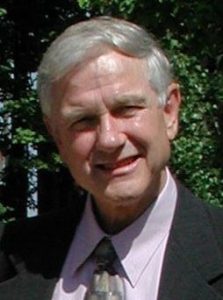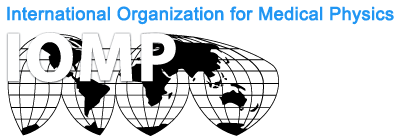IOMP Webinar: Leadership in Medical Physics
Thursday, 27th April 2023 at 12 pm GMT; Duration 1 hour
NEW: CME/CPD credit point shall be awarded for participation in the webinar in full.
To check the corresponding time in your country please check this link:
https://greenwichmeantime.com/time-gadgets/time-zone-converter/
Organizer: Eva Bezak, IOMP, Simone Kodlulovich Renha, IOMP
Moderator: Simone Kodlulovich Renha, IOMP
Speaker: Colin Orton, PhD

Dr. Orton graduated with a Ph.D. in Radiation Physics from the University of London, England in 1966. He has worked as Director of Medical Physics at New York University School of Medicine (Assistant Professor 1966-1975), at Rhode Island Hospital and Brown University (Associate Professor 1975-1981), and at the Detroit Medical Center/Karmanos Cancer Institute and Wayne State University (Professor 1981-2003), where he is currently Professor Emeritus in the School of Medicine. While at Wayne State he directed of one of the first accredited medical physics graduate programs, with over 150 M.S. and Ph.D. graduates. His major research interests have been bioeffect dose modeling, development of new fractionation and dose-rate regimes, HDR brachytherapy, cervix and breast radiotherapy, radiobiology, radiation carcinogenesis, radiation induced injuries, and radiotherapy physics, and he has taught courses in radiation biology annually to residents, therapists, and physicists. He has served as President of the American Association of Physicists in Medicine (AAPM), Chairman of the American College of Medical Physics (ACMP), President of the International Organization for Medical Physics, the American Brachytherapy Society (ABS), the International Union for Physical and Engineering Sciences in Medicine (IUPESM), and the International Medical Physics Certification Board. Dr. Orton has published over 20 books, over 290 papers, made over 600 presentations, and has received the major awards of the AAPM, ACMP, ABS, IOMP and IUPESM.
Abstract:
Many medical physicists would like to become leaders, but many will be just as happy working all their lives making valuable contributions to the health and safety of their patients without taking on the added responsibilities of leadership. This talk will review the different types of leadership available to medical physicists, what makes you a “leader”, and what opportunities are there for you to reach your leadership potential.
Leadership can take several forms for medical physicists, such as:
- Chief Medical Physicist
- Chief Clinical Physicist
- Radiation Safety Officer
- Director of an educational program
- Director of a residency training program
- Officer in a regional, national, or international medical physics organization.
In this talk we will discuss a variety of topics, including:
- Can anyone be a leader or do leaders need to have special traits (interests, skills, motivation, personality, commitment…)?
- Can leadership be taught and, if so, should a teaching program include “leadership” in the curriculum?
- Should there be leadership mentorship programs?
How can you work to become a leader?
